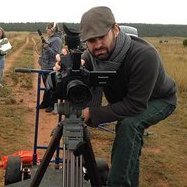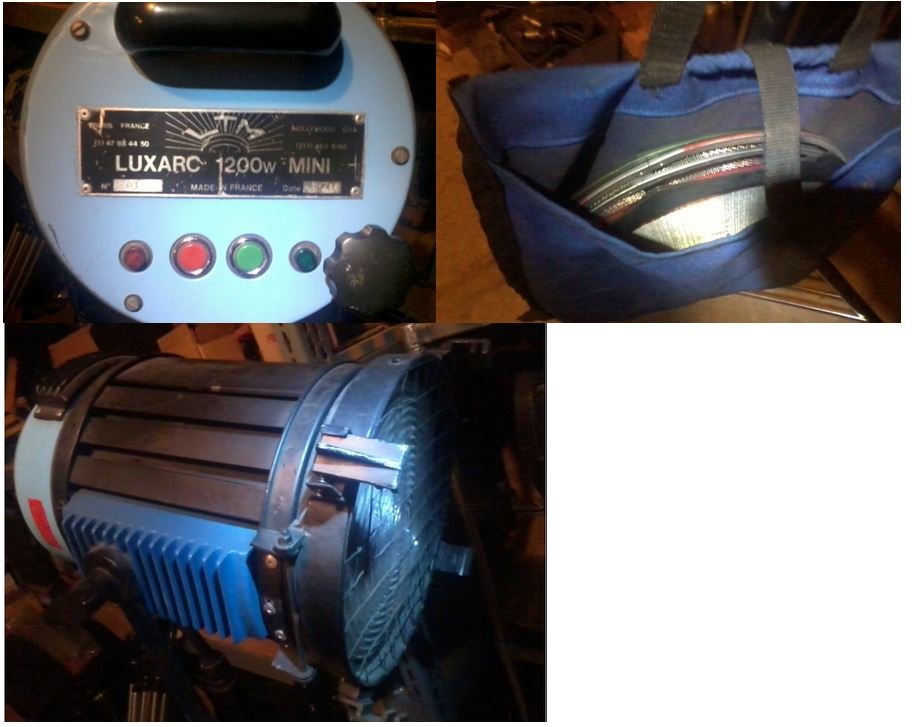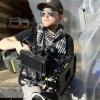Search the Community
Showing results for tags 'advice'.
-
I'm lost on what type of resume I need. I know eventually you'll get jobs based on recommendations, but I'm not there yet. Right now I have two types of resumes. For example one resume has my job experience of when I worked in my school's library, working at a movie theater, and my current job working as a PA at a news tv station. My other resume ONLY has PROJECTS I've worked on and what position I was. I dont have many in my post school career, but I'm starting to rack up a couple of professional PA gigs. My thought process was I should sort of make a combination of these two? To show for example if I was applying for a paid internship at a media company showing I have practical real life working experience and qualifications, or if applying for a gig showing that and experience with projects I've worked on. Anyone have any advice?
- 3 replies
-
- new filmmaker
- advice
-
(and 1 more)
Tagged with:
-
Hi,This is my recap about American Cinematographer's question What’s The Best Professional Advice you’ve received? from ASC CLOSE UP start with issue Vol 85 (2004) Enjoy , to be continued... https://fabiopirovano.wordpress.com/2016/01/09/since-vol-85-asc-close-up-best-professional-advice-recap/
- 18 replies
-
- 1
-

-
- American Cinematographer
- Close Up
-
(and 1 more)
Tagged with:
-
Hello fellow filmmakers! I have been editing in premier and color grading in davinci resolve. Ive actually enjoyed the process more than I thought I would but am curious how to achieve certain moods and tonws. I love the memory type of colors we get in call me by your name during the grass scene how might I achieve that? Overall the film has a very blue tone so how might you suggest I grade more romantic scenes, sad scenes, neutral scenes? Lastly, I have had trouble transferring slow motion from premier to resolve any advice? Thanks so much! Tyrone
- 15 replies
-
- Color grading
- davinci resolve
- (and 6 more)
-
Hi, I'm traveling to South Korea for possibly 2 years & was curious to know if anyone has had any experience working overseas in an Asian country. Was the language barrier an issue when finding work? Would foreign production companies be willing to hire foreign cinematographers? Any general advice? Thanks
- 1 reply
-
- Asia
- SouthKorea
-
(and 3 more)
Tagged with:
-
Hey everyone, I've been looking for a solid, hands-on introductory class for a while now and I'm looking for some advice, recommendations, tips, things to look (out) for. The program should give me a foundation on which I can build for the coming years. I want to learn the tools and craft, not how to use a particular camera. I've found three solid options so far, and they are: 1- Maine Media Workshops (Maine, USA): 10 week intensive cinematography workshop. PROS: Asked around and this program is definitely solid with some world class instructors. CONS: Extremely expensive. (16k) 2- Global Institute (LA, USA): The foundational programs. PROS: World class program and instructors, located in L.A. CONS: Asked a friend, apparently even the foundational programs are a bit too advanced for someone who's never worked in the camera department. Pretty expensive (expensive at about 10k for a bunch of classes). 3- Afilms (Barcelona, Spain): 3 month Feature Film Cinematography. PROS: Solid program, but not as good as the other two though significantly cheaper. CONS: Starts in a year, that's in quite a long time. I feel like doing this in a couple of months. I don't mind studying anywhere in the world, as long as I can justify it to myself. The class should be technical. I've been curating and improving my eyes for a while now and I'm pretty familiar with filmmaking at many levels, but I want to demystify light (or at least start the process), as I feel it will benefit me greatly as a director. I also feel like shaping light, so being able to DP my own little projects, explore studio photography etc. is something I'm interested in. I'm not under the illusion that I will become a DP after this workshop, I just want to be able to think like one at a basic level, so I can improve myself in the future. Director's showreel if anyone's curious. Thanks in advance.
- 1 reply
-
- advice
- cinematography
-
(and 2 more)
Tagged with:
-
So, I've posted this on a few forums, and if you've seen this already, I apologize. I just bought an old set of Came TV 900 LED panels for a very low price. They are very bright and the quality of light is great, but they have a magenta shift. Do I send them back or just buy some plus greens and go on my way? Does anyone else own these panels, or have this issue?
-
Hi all! I’m DPing a short road trip film next year that takes primarily in a car in the desert. I have some experience shooting in a car before, but would love any advice, input, or words of wisdom that you all may have in regards to doing it right and/or better. Moreover, if any of you have any car scenes from any film or show in mind, I’d love to hear them so I can study them as a reference. This is a low budget indie short film, so any advice on car rigging on a budget is much appreciated. I’m primarily looking at the Blackmagic Micro Cinema Camera as our main camera as it can easily mount to the hood and doors with a standard suction mount, and it's small enough to mount inside the car for various creative angles. In conclusion, I would just love to hear about your experiences shooting in a car, rigging cameras inside/outside a car, and any wisdom you might’ve learned through the process that you wouldn’t mind sharing. Thank you all in advance! All the best, Dante
-
Hello all, So as I talk to my friends and coworkers who are DPs and have talked to more ASC members about their beginnings, one common trait I have come across is that they have a mentor. Some have been taken under the mentor's wings by either the MENTOR asking them or vice versa. I want to hear from any other DPs and their experience with this? I was talking to a Script Supervisor on set recently and she was telling me that she emailed Script Supervisors that she hasn't even met and some have responded (union members) answering her questions and offered her to learn from them (as in to additionally come on set). Are there any experiences like this from any of you that you can share? What are some different ways to obtain and seek a mentor without coming off "forcefully" or "desperate" to get into the business? Thank you!
- 25 replies
-
- mentor
- director of photography
-
(and 2 more)
Tagged with:
-
I'll be traveling from LA to Berlin, Zurich, and then back to LA and I was curious if y'all could tell me about the restrictions/regulations of traveling with gear. I'm trying to put together a small camera package that can be put in to the overhead compartment, I know there's some business with lithium ion batteries so that's definitely a concern. Also, any recommendations for cameras of the 4K variety that are compact would be amazing. Thank you in advance!
- 7 replies
-
- international
- camera gear
-
(and 6 more)
Tagged with:
-
Ok, more than ONE question, I admit! :) I am a VERY beginning filmmaker who has not an iota of filmmaking and directing experience. Yet I have the dream of creating this huge, complex, well-polished independent short film using motion picture film and professional movie cameras. I am tempted to laugh at myself and say to myself, "Dude! You have no experience! Snap into reality and realize: you will not make this film and make it how you want it, without some type of filmmaking, directing, and cinematography experience." I am sure that is true and so.... I have no video camera except a cheap phone that has barely any memory on it so that is not an option. I do not have the money to buy a DSLR with video capabilities that I could use, either. BUT, I do have a Super 8 camera that someone gave me. So I figure, why not work with what I've got?! So, for any people out there who have made, or like to make, Super 8 films, what would be the best quality, least-grainy super 8 film out there? I would want it to be as clear and as close as possibly to standard 35 or 16mm as I can get, color-wise as well. I am guessing that the only way to do cuts is in-camera, correct? My camera has a tripod mount which I think is AWESOME, as I will definitely be using it! I am wanting also to do slow motion and time-lapse with the film, which leads me to my main question! Am I correct in guessing I would have to do that post-filming, using an optical printer?
-
Hey guys, I apologize for the long email, I just want to make sure you see the big picture. I've got a potential deal on the table that I feel like is a little too giving on my end. I plan to meet back with him and go over my concerns, ask questions about potentially changing the deal, maybe making a counteroffer. But I want to have my guns loaded, be prepared, knowledgeable and know what options are available on this subject before I do so. I've got some questions, and I also feel like there are questions that I'm unaware of out of ignorance that I should be asking. I've broken this up into parts so you can follow along and get all the info. Background on Me: I'm director/DP/editor in Atlanta. I dabble in different things but the majority of my work comes from hip hop/rnb/pop music videos. The work in my reel stands out and my quality is considered to be in the top tier for directors in Atlanta. You can see the reel of my work at www.alphamalevisuals.com/reel I'm still relatively new to the city, and I have realized that it's not the best directors or cinematographers that get the opportunities to shoot bigger budget videos with bigger artists (which is one of my goals). It's all about your network and who you know that will recommend you to do a particular job. I moved to ATL in March of 2016 where I started completely fresh from ground 0. I started networking and really didn't start making money until around July. Since then, my momentum as slowly been growing as I go out and try to network and get into different circles. However, alot of my work has been from out of towners or "smaller" local artists from instagram or youtube with ok budgets. I do have a decent IG following for a director (40k followers on instagram) and I have been getting my own projects. But I haven't broken into the bigger budget/bigger artist scene yet as a director. I've only been hired on those jobs by other directors to light/dp/ and shoot for them. In 2017, I'm trying to break out into the big stage as a director and ultimately be able to charge these higher prices and make more money. My Dillemma: I've been approached with an opportunity to have a "manager" who is well connected in the industry and could be "that guy" to plug me into these bigger jobs with bigger budgets and artists. He has worked with a couple well-known directors in the past that I have actually studied and looked up to. He didn't necessarily manage them and get a cut, but he referred clients to that director for work. Now that he has seen my work and I'm a new face, he sees a financial opportunity and has put an offer on the table to form a team where he will push my brand and make connections and referrals for me to get bigger jobs. Once he starts getting me the first few jobs, it will turn into a snowball effect and the door will open for many more bigger budget/bigger artist jobs....supposedly. Over time, we would begin to charge higher prices. The catch here is that, if he's going to plug me in, he wants to sign a contract that states he will receive 20% of ANY project that I shoot going forward. Even the projects that he doesn't bring me. My Reaction: This sounds like a bit much to me, but maybe because I've never seen what a deal like this is supposed to look like. I assume this is the equivalent to having an agent or representation from a company that can get you jobs you normally couldn't get yourself. I just start thinking about the amount of work that goes into doing a big production because I am the director and the DP, so I spend days preparing, figuring out how I'm going to light it etc. I'm also the editor, so I spend days after the shoot editing it. I'm wondering if taking out that much for a manager would be worth it. My Questions: 1. What's the average percentage a manager like this should be getting? Is 20% a fair number? Should it be 20% of what I'm getting paid or 20% of the total production budget. For example, the total available budget a client might have to spend on a video is $4,000. I would be getting paid $2,000 and the rest would go to location rentals, props etc. other expenses to make the production. Should he be getting 20% of my pay $2,000 or the total $4,000 2. Is it fair that he would get 20% of jobs that he didn't reccomend me for? I do have some relationships in Atlanta and it's slowly growing over time. I feel like, getting to where I want to be is ultimately a task that that I could reach on my own without a manager, but it would take MUCH longer to build that reputation and name. I'm worried that, I sign the contract, I start getting these bigger budgets & working with bigger names, but a large portion of the money is coming out, I'm not getting paid the money that I feel I should, then I feel like I'm stuck, or the amount of work that I'm doing isn't worth the money I'm getting. etc What good is a good name if I'm not making good money? I don't want to regret signing it. 3. I also work on projects that don't have to deal with the music industry; feature films from unrelated clients, small business commercials, reality tv. Should he be getting a cut from those? 4. On the flip side, I do understand the possibility that once my name starts getting bigger, clients may start reaching out to me directly instead of going through him, and then it will be hard to tell if it was a client I wouldn't have gotten if it wasn't for him. 5. What about jobs I already had lined up before the potential signing of the contract? Should he get a cut out of that? 6. I'm thinking that if I DID sign something like this, there should be a specified time period that it should be in effect for. It shouldn't be an indefinite deal forever. How long should a manager contract like this last for? 7. If I feel at some point during the term that the deal just isn't worth it anymore or I feel like I'm not getting the return that I should, what are my options of getting out of the contract? Can I get out of it? How should this section be written to protect my best interests? 8. When I sit down with him to talk about making changes to the deal, what are some other points that I should bring up that maybe I haven't brought up to protect or be in my best interests? I'm looking for any type of advice from people who have seen something like this before and what my options might be.
-
I currently work with a bunch of tungstens that have been getting the job done. I would like to buy an HMI but they are just so expensive. I would like to spend 1000-1500 for one so I have to choose between buying used or buying one of the cheap ones from China new. My main motivation behind buying an hmi is to be able to light people during the daytime while the sun is out. My two options are: A. to buy this new chinese 1200w hmi for $1240 here There's a video review of a guy who tested it out (embedded in the site) and says that it's worth the money and risk of buying off-brand compared to the more expensive arri brand. B. buy this used Luxarc 1200w mini hmi from craigslist for $1200. (picture attached) The guy claims this light/brand is the workhorse for alot of production houses. I'm not sure if he's telling the truth or not so I wanted to check with you guys So my questions are: 1. Is Luxarc really a trusted more reliable brand? Would you buy a used Luxarc and the risks that come along with used over a new chinese brand and its risks? 2. Do you think the Luxarc would have more light output or would they both be the same? 3. My main purpose is to be able to light people during the day. Do you think 1200w hmi is enough to achieve that or would I need to get higher wattage for that? Thanks
-
I'm starting to look into purchasing my own fluid head and sets of sticks. I typically work on set with the Sachtler 80 and O'Connor 2575 heads, but would like to invest in a head for my own equipment kit. While I'm not in the market to purchase neither of the heads mentioned above, I would like to look into a possible vintage head that would work well with my RED One MX package. Typically my package is fully kitted and lensed with Zeiss Super Speeds, but I occasionally use LOMO Anamorphic lenses, or an Angeneiux 25-250 zoom. I'm currently looking into the O'Connor 50D fluid head, and would like feedback on the model. Also, if anyone has other recommendations I would like to hear those too! Marcus
- 7 replies
-
- fluid head
- tripod
-
(and 4 more)
Tagged with:
-
Hello all, I'm an aspiring film director/producer, entering UTA next year as a freshman. I constantly hear that you need to be in LA for the film business, or that everyone ends up in LA, and I wanted to know a little more about this. My question is, why? Why do you need to be in LA? I lived there when I was younger, and all that I remember was that the cheapest dirthole was still more expensive than my modest house in Austin. Also, I've had friends tell me how strict LA is on permits, whereas in Austin, I was shooting on the street w/o any permits and a police cab came up and offered to buy us lunch. So...why LA? I ask this question because Austin's film program is offering students internships at select studios in LA (such as Paramount and Lionsgate) as well as in NYC (but I believe that's more for TV). However, is this something worth looking into? To be honest, and I don't know everything about the industry so this is all coming from interviews/workshops, but the films I want to make I could make probably shoot here in Texas. I would be honored to hear what you guys think and what your experience is with this. P.S.: Money is a HUGE factor for me. Edit: added some line spacing.
-
Hey this is my first post here so let me know if I'm screwing up out the gate. I've been shooting shorts with a DSLR and some cine lenses for about 3 years now. For 2 of those years, I've had a pair of LED lights made by Bescor in my arsenal, here's a link to them for the stats/info: http://www.bhphotovideo.com/c/product/819592-REG/Bescor_LED_95DK2_LED_95DK2_Dual_LED_Light.html Obviously, I don't know my way around lamp statistics, applications, etc. and wanted to post what I don't like about these and hopefully get some advice from you guys on what specifically needs to be better. The 2 main gripes I have with these LED lights are a lack of brightness, and an odd shadow casting that appears jagged, similar to the shadow in this picture Every time people ask stuff like this the first reply seems to be "well what do you want to do?" and my answer for that would be either run and gun documentary/videography OR a slower workflow for something like an indoor short film shoot. If you guys have any easy guides to LED light stats, lists of brands to love/avoid, or any specific recommendations for under $1000, it'd be much appreciated. Thanks in advance for replies.
-
Hey, I am a Film Studies student and hope to make a stop-motion animation as a side project. I was just wondering what DSLR-type sensor you would recommend for the project (have to be under £600) and what software? I'm hoping for a cheaper version of DragonFrame... Well, actually, camera wise I've been looking at the Canon EOS M3 or the Nikon D3300 (which is an SLR). What do you think about either of these or could you think of an alternative? I really appreciate you reading this and if you answer, thank you very much.
- 12 replies
-
- stop-motion
- animation
- (and 5 more)
-
Hi all. I am shooting my first reality tv show. It is a big break for me. I am really excited for this. It is happening fast and what seems last minute. If you have any experience and wisdom to share, it would be greatly appreciated. I am the main DP and local fixer for this show. Besides myself as A camera op, my team is a B camera op and an audio person. How fast does reality tv shoot? The director mentioned something about bonuses. Does that really happen? Thank you in advance.
- 5 replies
-
- reality tv
- production
-
(and 2 more)
Tagged with:
-
Hello, I am the 1st AC on a short film that's coming up and I was wondering if anyone has some advice when it comes to shooting on beach locations? We are using a combination of film and digital. Cameras include Arri Alexa, Arricam LT, and Arriflex 235. I believe we are using just film while on the beach and it looks like it's going to be mostly handheld at this time. Thanks, Erik
-
Hey guys! I'm new here but glad I found this forum. My new to filmmaking in general but have always had a passion for film especially in the realm of horror. Just recently, I took a risk and just did my first short horror film. I recently completed a little 2 minute short for a contest with Chiller TV. I didn't win...but I got out of my comfort zone and took a risk. I LOVED IT, though I told myself I should just give up and quit. I realized after feedback from multiple people, my story for this short was very weak. Hard to follow. Putting myself out there with all my mistakes but wanted to share it with you guys and get your thoughts in it. This was shot with a Canon 1100d and edited with Final Cut Pro: https://vimeo.com/95459742 -Brandon
-
I'm a senior in high school and I really want to go into the film industry, the problem is that I live in one of the smallest towns in Alabama with very little money. I have no idea how to get started, or where to go, should I go to film school? I really don't want to be 80,000 in the hole but to accomplish my dream I'll honestly do just about anything, does anybody know what I should do? The only experience I have is filming my schools athletic events for the coaches with a home video camera, please help if you can. Thank you, Peyton
-
Hi To preface this post: I apologise if this is not the place to be posting my work. I had a brief hunt on this forum for a set of dos-and-don'ts, but couldn't find one (further apologies if I'm just being dense). I have spent the last few months (on-and-off) colour grading my latest short film - shot on 4K with a RED Epic camera - to be ready for festivals. I would really appreciate feedback from any sets of better-trained eyes as to how I've done, and if I could do better before sending it out. I use Magic Bullet Looks because it's cheap and accessible for a first-time grader like myself. I don't actually use the 'look' presets. First, I went through each clip in the timeline, correcting the levels and adjusted the midtones so the skin tones matched the memory colours, then I stared grading in earnest. Here's the link - it's an unlisted Youtube link, so PLEASE do not share it: https://www.youtube.com/watch?v=1SStHFzc2ww To be more specific about feedback: I'd like to know if you think the colouring looks appropriate throughout the film, if there are any moments where you notice a mistake or problem, especially if it detracts from your enjoyment/immersion in the story. And for those who wonder why I didn't just hire a skilled colourist - I wish! This was a student project for my Masters dissertation. No money to hire a decent colourist, and whilst I know there are talented individuals out there willing to work for free, there are also plenty of amateurs. As an amateur myself, at least I have the creative control to go back and start again if it's no good the first time. Many, many thanks to anyone who can spare the time to help me out.
- 1 reply
-
- Advice
- Colour Grading
-
(and 1 more)
Tagged with:
-
Hello! I am new to this forum and this is my first post. I'm graduating in 3 months and I am looking for a direction to build my career in. I know I want to pursue a career in feature film cinematography. I've shot quite a few things while in film school and have built up a reel with photography portfolio as well. But I know I still have much to learn. Website: Montgomeryimages.com My questions is this: If you want to build a career in cinematography and do this for a living which is better to do? 1. Go to the nearest budding film city and work from the bottom in the Grip/Electrical department. (I am hesitant to do this because I am afraid that all the camera skills I learned will disappear.) 2. Go to the nearest budding film city and work from the bottom in the camera department. (I am hesitant to do this because I am afraid that all the Lighting/gripping skills I learned will disappear.) 3. Go to a smaller city (I.e. a city with not as big a film incentive) invest in your own lighting/camera gear and start taking low budget gigs with the intent on making a name for yourself in that city. "Bigger fish/Smaller pond" (I am hesitant to do this because I am still learning and I feel like I should be learning from others. Don't I need to "pay my dues" as they say?) I am really passionate about cinematography and this industry. When I am on set as , I get in this "flow" where time will just pass and I can be there for hours without breaks. Thank you for any advice that you can offer. Justin Montgomery Montgomeryimages.com
- 10 replies
-
- Cinematography Career
- Lighting
-
(and 3 more)
Tagged with:
-
hey all, posibility of traveling to Haiti with small crew by the end of the month to do some doc style/ live music filming. Was wondering if anyone had done any work or had speant any amount of time in haiti or filming in a similar country. Any crew support? security & health concerns, things in general to watch out for.... anything will help Thanks in advance!!
-
Hello all, I have a bit of a dilemma with a scene I am shooting where the director would like the lighting to change from night to day in one shot. The shot is in a (small) kitchen on a mid of a man sleeping at a table. We have a 400w HMI, 2k blonde as well as an 800w fresnel and 2 650's. We don't see the window in this frame which does help out a little. I was thinking of simply blacking out the window and then slowly letting the light come through starting at the top and moving down so the daylight hits the top of the ceiling first and then spills down to fill the room, then re creating the night light from outside, inside with one of the smaller lights. Does this sound like the right idea for the given situation? We could alternatively shoot when it's dark outside and then fake the daylight. Any comments would be much appreciated. Thanks, Tom
-
Hi all, I'm shooting a feature in Cape Verde this feb-march and although I've shot in Africa before (Burkina Faso & Zim), never a feature and at this level. Just wondering if anyone has any pointers on obvious issues and possible solutions to them? The whole shoot will be in a city with (albeit limited) access to power. Apart from the obvious issues of travel, accommodation, food & drink etc. the main issue we'll face is the light - top sun, dark skin tones, literally no golden hour (I think we'll be at around 17 degrees north), dark as death during the night, restricted access to power. Due to budget and logistical issues I have to be fairly careful with what we take over so I'm planning on using a lot of practicals-turned-film lighting, i.e. china balls, work lights. Also to fill frame & create interest, christmas lights, etc. By far most scenes will be shot during daylight hours so natural light will be no.1 but there are a few scenes during night. So have any of you shot in similar situations and have any pointers? I've read things like sowing white fabric under baseball caps while bouncing sun towards face etc. Any comments are appreciated. Thanks, PJ
-
- advice
- conversation
-
(and 2 more)
Tagged with:













